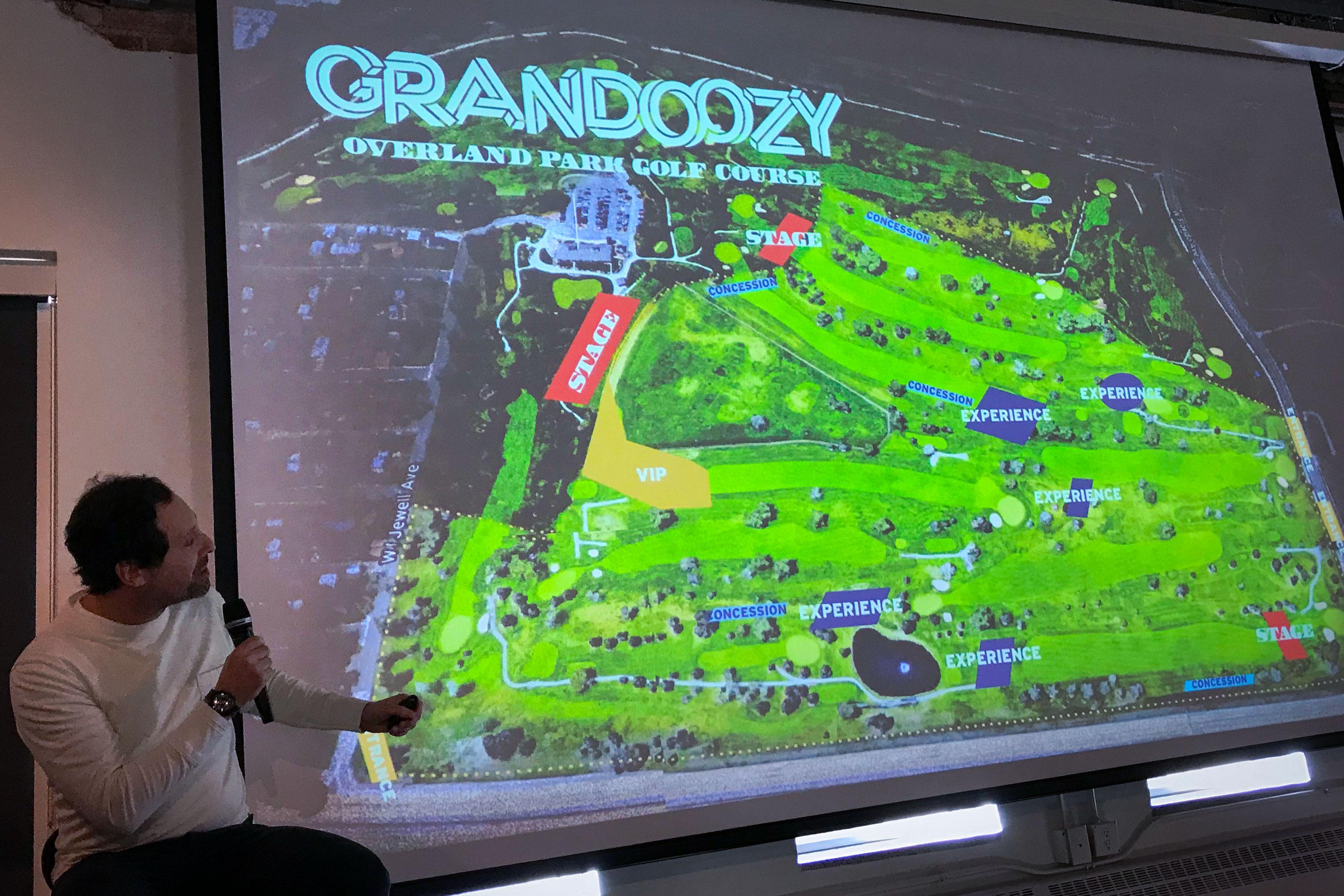

The big new music and arts festival coming to southwest Denver this fall now has a name: “Grandoozy.”
Superfly, the production company behind well-known festivals like Bonnaroo in Tennessee and Outside Lands in California, announced on Thursday the name of their new Denver festival that will run Sept. 14 - 16 at the Overland Park Golf Course.
The initial lineup for the festival won’t be announced until March 20.
Superfly co-founder Rick Farman said they’ve “long held aspirations” to produce a festival here.
“We’ve noticed how the overall creative scene has evolved and developed in the Denver area,” he said. “So, for us, it’s really the perfect recipe of an audience that would be receptive to what we do and [a scene that has] all of the cultural assets that can power what we like to do.”

During Thursday’s press conference, Visit Denver president & CEO Richard Scharf said Grandoozy is a big get for the city.
“Music festivals today are economic drivers and they reinforce a brand,” Scharf said. “We’re going to see great economic impact from this, both from residents and out-of-state visitors. And [Superfly] is helping me sell [the Denver] brand because everything they’re going to promote is who we are.”
What’s with the name Grandoozy?
Farman said he and his partner, Jonathan Mayers, wanted a name that would be “fun, playful, and really unique to Denver so that this event could be something that’s iconic for the city… and not be associated with anything other than this.”
They didn’t want something too cliche, he said, so they steered away from names that might play off of things that “are typically used as reference points for Denver and Colorado.” Anything “Mile High” was certainly out of the running.
The Denver City Council approved a five-year contract back in July for Superfly Productions to hold the music festival at Overland Park Golf Course each September. That vote came after months of hearing concerns from residents of the Overland and Ruby Hill neighborhoods.
Some residents said a public space shouldn’t be used for a private event. While the festival will run for just three days, the golf course could be closed four to six weeks to allow for setup and breakdown. Locals were also concerned about the festival’s effect on animals and people living in the area. The festival’s expectation of up to 40,000 people would bring noise and traffic, and cause parking issues, opponents said. In response, organizers said they’d encourage use of public transportation and bike trails.
City council members Kevin Flynn, Deborah Ortega and Paul Kashmann all voted against the festival. They were worried the location of the event could jeopardize some public works projects.
After Thursday’s press conference, Farman said they’ve been meeting with community members “on a regular basis.”
“That will be a process that never ends,” Farman said. “We'll be doing that from now up until the event. And then post the event to really figure out what worked and what didn't to make improvements for future years.”
Many residents, as well as people from the local music scene, supported bringing the festival to southwest Denver. Those in favor said it would elevate the Colorado music scene and bring a much needed cash infusion to the area. Fred Weiss, director of finance for Denver's Parks and Recreation, said the city could make more than $2 million each year from the festival and that most of that revenue will go directly to the golf course, the city’s golf fund and the surrounding neighborhoods.
Superfly hasn’t been the only group to encounter obstacles when bringing a large-scale music festival to Colorado. Riot Fest was pushed out of the Eastern Plains town of Byers after its first year — residents had complained about traffic, noise and intoxicated people. It ended up at various venues in Denver before announcing in 2017 that it would not return to Denver following the death of organizer Sean McKeough. The “Gentlemen of the Road Tour” also faced a lot of pushback when it came to Salida in 2015. Farman is cautiously optimistic this will be different.
“We’re certainly aware of what’s happened in the market with other events,” Farman said. “At the same time, we really focus on what we do and making sure that we do that really well. Our ethos is about producing things in harmony with the community… that really involves what the community has to offer.”









